How long does a mattress really last?
A report on ecological standards for mattresses [1] has shown that the lifespan of a mattress typically ranges from 3 to 15 years.
Research [2] also suggests that the average mattress lasts about 10 years.
But how long your mattress actually holds up depends on several factors, which we'll look at next.
Type of mattress
There are dozens of different types of mattresses, and very often how long a mattress lasts will come down to the materials it is made from.
Here’s a breakdown of how long different mattress types tend to last:
- Pocket sprung mattress: 6 - 8 years lifespan
- Hybrid mattress: 8 - 10 years lifespan
- Memory foam mattress: 8 - 10 years lifespan
- Cold foam mattress: 10 years lifespan
- Latex mattress: 15 years lifespan
So, latex mattresses can last up to 15 years, while pocket sprung ones usually have the shortest average lifespan.
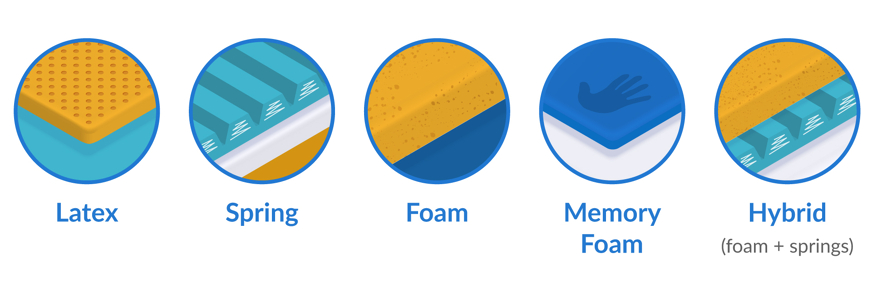
It is worth noting, though, that pure latex mattresses tend to be a lot more expensive than other types of mattresses, so if you're looking for a cheap mattress, this is unlikely what you'll be going for.
Quality of the mattress
Of course, quality matters, and a cheaper mattress generally won’t last as long as a pricier, high-quality one.
Investing in better craftsmanship can pay off in the long run when it comes to how long a mattress lasts.
This doesn't mean that you have to go for a luxury mattress, though.
In fact, many value-for-money mattresses like the Hypnia Original Hybrid and Origin Hybrid Pro come with 15-year gaurantees, meaning they're designed to offer you a great night's sleep for years!
Density of materials
The density of a mattress also has a big impact on its lifespan.
Density is measured in kg/m³ and varies depending on the material.
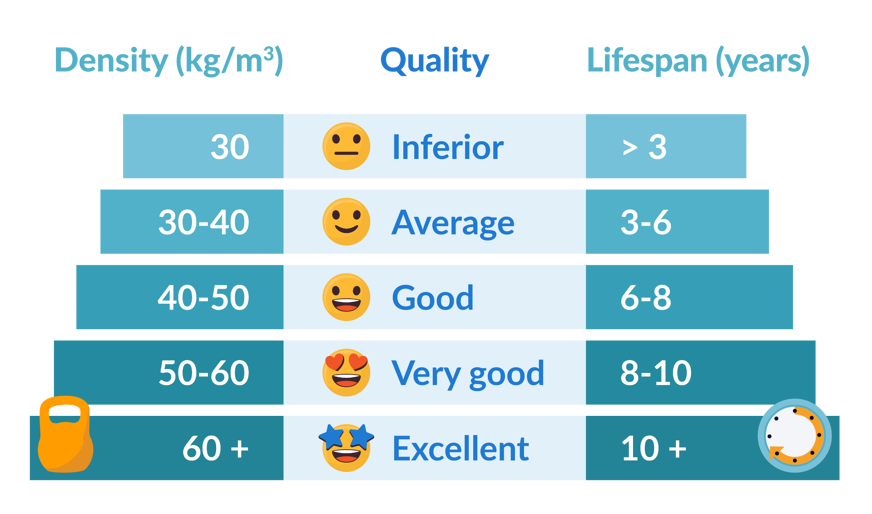
Here’s a guide to how long mattresses last based on density:
- 25 kg/m³: 2 years average lifespan
- 30 kg/m³: 3 years average lifespan
- 35 kg/m³: 5 - 6 years average lifespan
- 40 kg/m³: 6 - 8 years average lifespan
- 50 kg/m³: 10 years average lifespan
The rule of thumb? The higher the density, the longer the mattress tends to last.
Usage
Many mattress brands, like Hypnia, Nectar, and DreamCloud offer long warranties - sometimes 15 years or longer!
But while the above brands may be quality options, a long guarantee doesn’t always mean the mattress will last that long.
How long a mattress lasts often depends on how you treat it.
A mattress that’s barely used - like one in a guest room or holiday home - will naturally hold up much longer than one you sleep on every night.
What factors affect how long a mattress lasts?
Beyond the type and density, other things can influence how long a mattress lasts.
These depend more on your personal habits:
- How you treat it: How you handle your mattress - like eating in bed or jumping on it - can shorten its life by letting bacteria build up [3] or causing damage.
- How often it’s used: A mattress in a guest room keeps its shape longer than one you sleep on daily.
- Body weight: Heavier people put more pressure on a mattress, which can lead to dips and cut its lifespan, while lighter folks might enjoy the same mattress for longer.
- Moisture and sweat: Mattresses can soak up sweat, moisture, and bacteria. Ones that wick moisture away stay cleaner and last longer, especially if you sweat a lot.
- Pets in bed: It’s cosy letting the dog or cat sleep with you, but pets bring bacteria and sweat heaps, and might even scratch or chew the mattress, shaving years off its life.
Keep these in mind to help your mattress go the distance.

How can you make a mattress last longer?
There are ways to stretch out how long a mattress lasts - brilliant news, since a mattress is often a big investment.
Here are 3 tips for you! 👇
Care
Regularly cleaning your mattress can extend its life by fighting off bacteria and mould.
Hoovering it does wonders, and, for latex mattresses, wiping them down with a cloth is key since latex isn’t great at shedding moisture.
Also take a look at our guide on the best mattress cleaners to help you gest started.
Don’t forget to wash your bedding too - including the mattress cover if it’s removable. 🧺
Regular flipping
Some mattresses have two sleep sides and need to be flipped regularly.
This will help your mattress last longer, as it'll help the mattress keep its shape.
To help no-flip mattresses last longer, you'll need to rotate them every 3 - 6 months for even use.
Using quality sleep products
How long a mattress lasts also depends on other sleep gear.
Good examples are mattress protectors and toppers - they shield your mattress from wear and tear and protect it against dirt, dust, moisture, and bacteria.
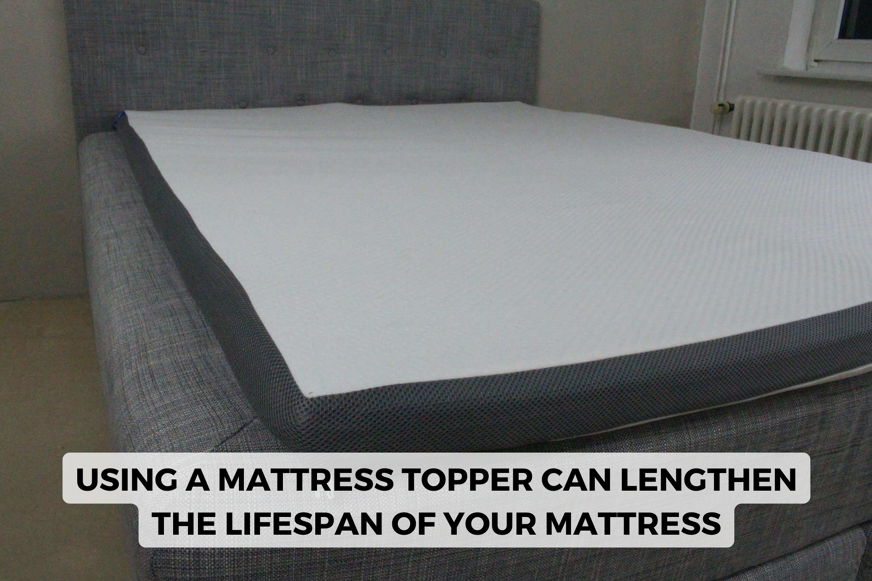
A decent bed frame can make a big difference to its lifespan, too, since it'll ensure your mattress is properly supported.
Take a look at some of our favourite mattress-saving sleep accessories:
How do you know it’s time to replace your mattress?
It’s usually pretty obvious when a mattress is on its way out.
We actually have a whole guide on the signs of a bad mattress, but we'll give you a quick overview here, too:
Mattress starts squeaking or creaking
If you have a pocket sprung or traditional spring mattress, you need to keep your ears peeled.
If it starts squeaking or creaking, the springs are wearing out and it's time to buy a new mattress.
Your body imprint lasts longer than 15 seconds
If you have a memory foam, gel foam, or cold foam mattress, you'll need to keep your eyes open.
If your body’s imprint stays in the mattress for more than 15 seconds, the foam’s past its prime.
Buying a higher-density foam mattress will ensure it lasts as long as possible.
Motion transfer
You can also check for motion transfer.
With a new, quality mattress, you should barely feel your partner moving.
But if you suddenly do, the materials are likely past their prime.
Sleep temperature
If you usually sleep at a comfortable temperature but suddenly feel hotter during the night, it can be a sign that your mattress isn't dissipating heat and moisture like it should. 💧
Smell
Does your mattress smell a bit funky?
That’s another clue it’s no longer dissipating heat and moisture well.
This makes it a prime spot for nasties like dust mites or bed bugs, so attending to your bed is paramount.
Back or neck pain
Waking up with regular back or neck pain out of the blue?
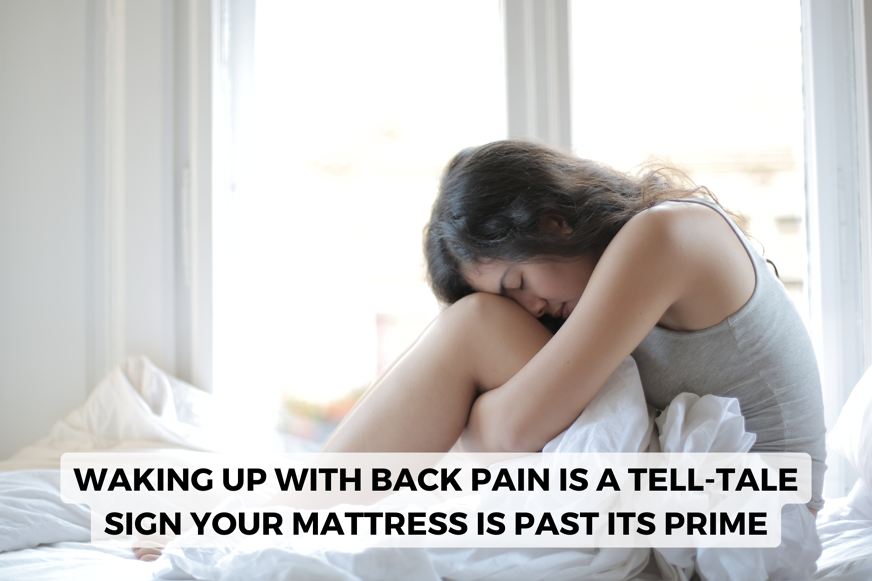
It could mean your mattress isn’t supporting you like it used to.
Watch these signs closely.
If several crop up at once, it’s almost certain your mattress has seen better days.
So, how long does a mattress last?
On average, a mattress lasts about 10 years, but lifespans range from 3 to 15 years depending on material, quality, and use. 🛏️
Good care and protection can help your mattress last longer, but it's always important to start with a good base.









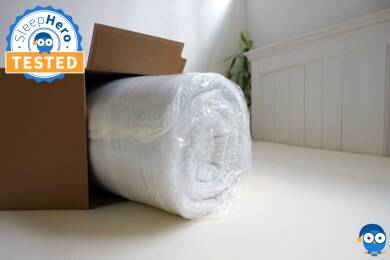

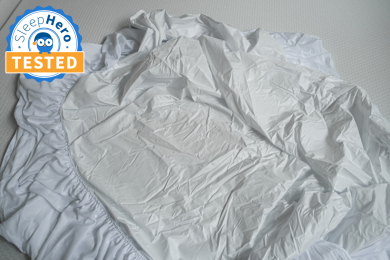



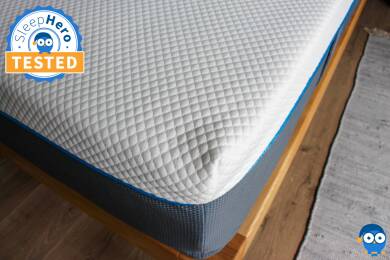
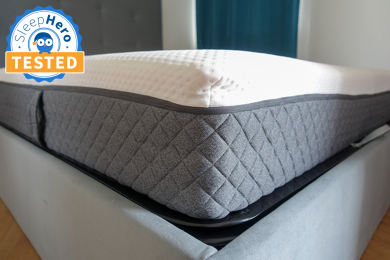



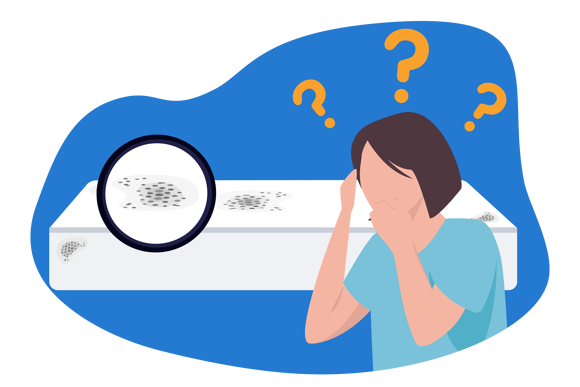




Alternatively, message us directly via the Contact Us page.